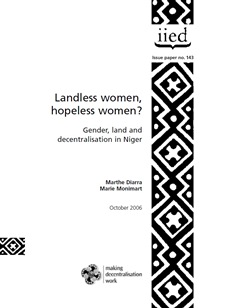Focal point
Location
Mission
Our mission is to build a fairer, more sustainable world, using evidence, action and influence in partnership with others.
Who we are
IIED is one of the world’s most influential international development and environment policy research organisations. Founded in 1971 by economist Barbara Ward, who forged the concept and cause of sustainable development, we work with partners on five continents. We build bridges between policy and practice, rich and poor communities, the government and private sector, and across diverse interest groups. We contribute to many international policy processes and frameworks, including the Intergovernmental Panel on Climate Change, the Millennium Ecosystem Assessment and the UN conventions on climate change and biological diversity.
What we do
IIED carries out research, advice and advocacy work. We carry out action research — generating robust evidence and know-how that is informed by a practical perspective acquired through hands-on research with grassroots partners — and we publish in journals and maintain high research standards. We advise government, business and development agencies, and we argue for changes in public policy. We focus on bottom-up solutions, stay open to flexible, adaptable solutions and are marked by a tradition of challenging conventional wisdom through original thinking.
Resources
Displaying 316 - 320 of 367Innovation in Securing Land Rights in Africa: Lessons from Experience
Paper examines current trends in land tenure and sources of insecurity, describes innovative policy and practice to secure various kinds of tenure rights. Seeks to gather insights and lessons from seven case studies (Ethiopia, Ghana, South Africa, Namibia, Mozambique, Uganda, Niger). Aims to inform current policy debates and initiatives to support land tenure security for low-income, resource-poor and vulnerable groups who make up the majority of Africa’s population.
Les liens entre prospérité urbaine et rurale dans les pays à revenus faibles à moyens
Les villes tirent profit de la prospérité de l'agriculture
Landless women, hopeless women? Gender, land and decentralisation in Niger
This paper is a summary of a regional case study on gender, land and decentralisation. The main study has two parts: three portraits of women showing different examples of access to natural resources and local leadership; and a general report based on the portraits and on interviews carried out in seven study sites in Maradi and Zinder regions in Niger.
Making law work for the poor
Legal processes can help improve the lives of the poor in developing countries e.g. through establishing fair rules on international trade and securing land access in rural Africa. For this to happen, poorer actors – whether individuals or states – must have equitable access to the legal system, including a fair say in law-making processes, and access to effective enforcement institutions.
Land Registration and Women’s Land Rights in Amhara Region, Ethiopia
Covers land-tenure system in Amhara Region, the land rights registration process, women’s access to and control of land, land use by men and women, marital property rights, inheritance rights, female-headed households, legal services, conclusions and recommendations.






